Luxury Bamboo Sheet Sets: Ultra Soft & Eco-Friendly Comfort
The Rise of Sustainable Comfort in Textiles: Understanding sheet sets bamboo
The global textile industry is witnessing a significant shift towards sustainable and high-performance materials. Among these, bamboo-derived fabrics have emerged as a frontrunner, particularly in the bedding sector. The increasing demand for sheet sets bamboo is driven by consumer preferences for eco-friendly products that do not compromise on luxury or durability. This trend extends from high-end residential markets to the hospitality and healthcare sectors, where superior comfort, breathability, and hypoallergenic properties are paramount. Understanding the intricacies of bamboo fiber processing, material science, and product application is crucial for B2B stakeholders aiming to capitalize on this growing market segment. Our focus here is on providing a technical and strategic overview to inform procurement decisions and product development.
The market for bamboo bedding is expanding rapidly, projected to reach substantial growth figures in the coming years due to increasing awareness of environmental impacts and a desire for healthier living environments. This growth is supported by innovations in textile manufacturing that enhance the natural benefits of bamboo, such as its inherent temperature-regulating and moisture-wicking capabilities. For businesses, this presents an opportunity to offer premium products that align with contemporary values of sustainability and well-being. Investing in high-quality sheet sets bamboo not only satisfies consumer demand but also positions a brand as forward-thinking and committed to responsible sourcing.
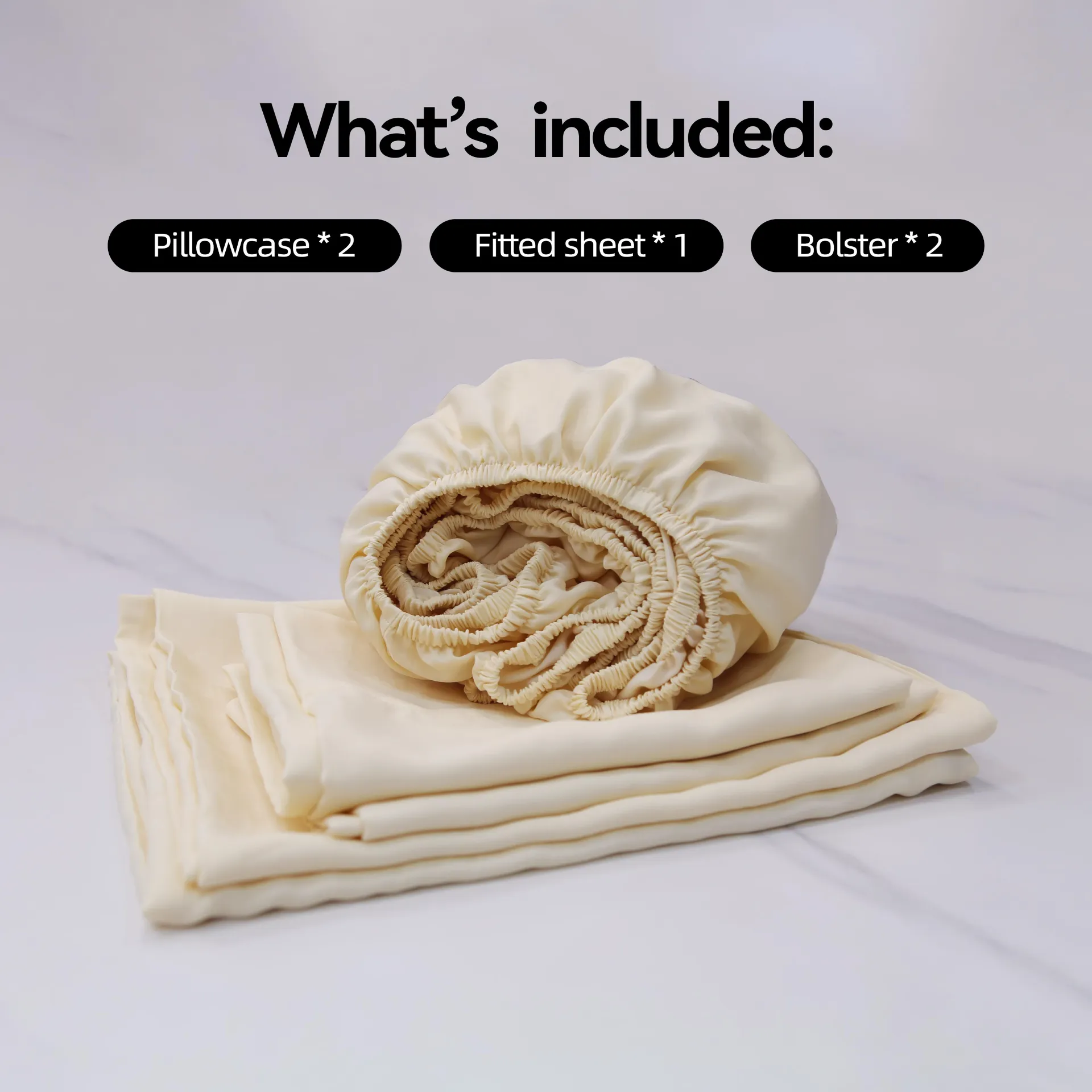
Exploring the Diverse Types of Bamboo Sheets
When considering sheet sets bamboo, it's essential to understand the various classifications derived from bamboo fiber processing methods. The primary types include Bamboo Viscose (or Rayon), Bamboo Lyocell, and Bamboo Linen. Bamboo Viscose is produced through a chemical process that dissolves bamboo pulp and extrudes it into fibers, resulting in a soft, silky fabric. While widely available and comfortable, its environmental footprint varies depending on the chemicals used and their recovery.
Bamboo Lyocell represents a more environmentally friendly alternative. This process uses a "closed-loop" system where non-toxic solvents (like N-Methylmorpholine N-oxide or NMMO) are recycled, minimizing waste. Lyocell bamboo fabric is renowned for its exceptional softness, strength, and moisture-wicking properties, making it an ideal choice for high-performance bedding. Lastly, Bamboo Linen, while less common, is made through a mechanical process similar to traditional linen production, yielding a more durable and breathable fabric with a distinctive textured feel. Each type offers a unique blend of softness, durability, and environmental credentials, influencing their suitability for different market segments and price points within the sheet sets bamboo category.
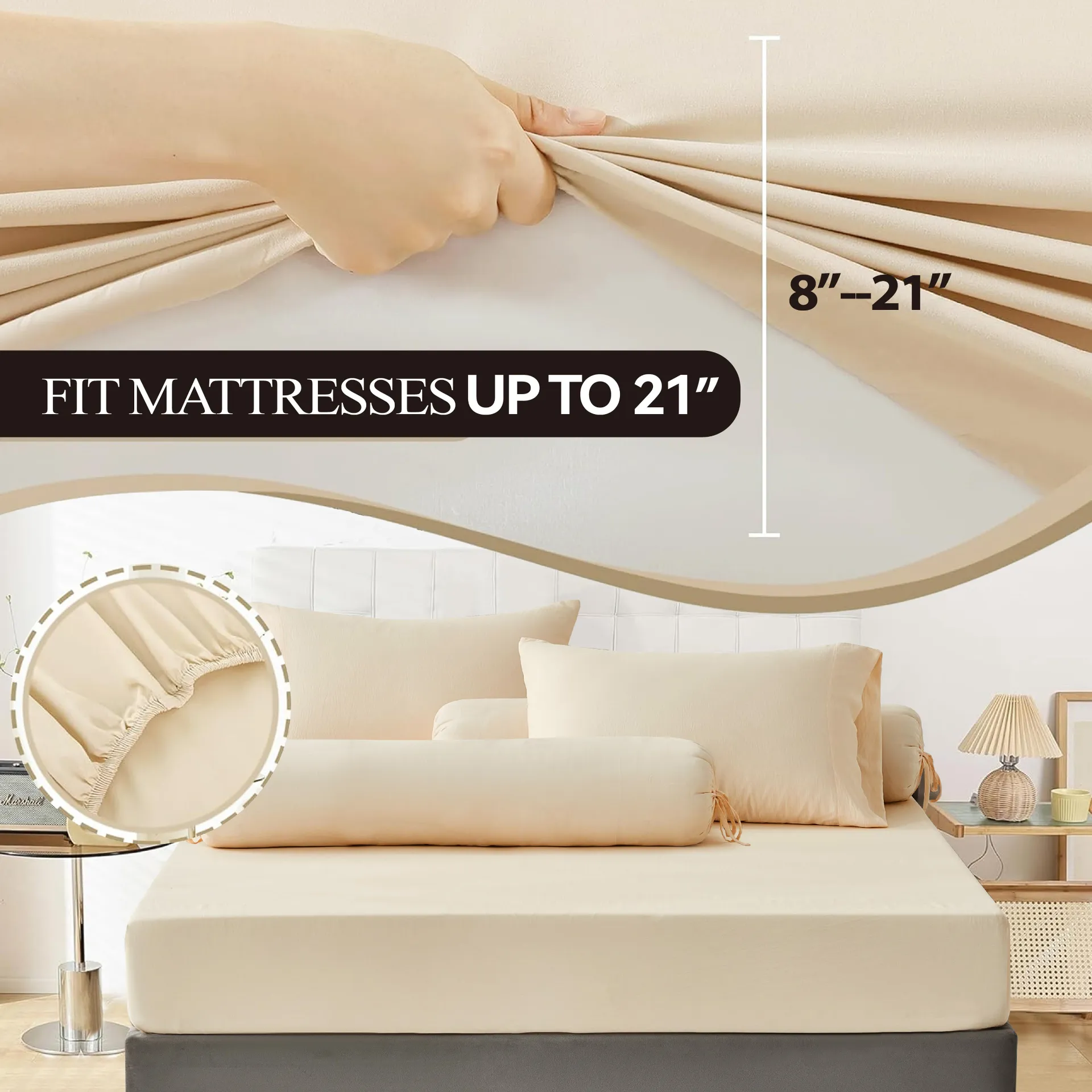
The Advanced Manufacturing Process of Quality Bamboo Sheets
The production of premium sheet sets bamboo involves a multi-stage process ensuring both fabric integrity and performance. Initially, bamboo pulp is harvested and processed. For Lyocell production, the pulp is dissolved in a non-toxic solvent and extruded through spinnerets to form fibers. This "wet spinning" method is highly efficient, allowing for precise control over fiber diameter and length. Post-extrusion, the fibers undergo washing and drying to remove any residual solvent, which is then recovered and reused, highlighting the closed-loop nature of the Lyocell process.
Following fiber production, the raw bamboo fibers are spun into yarn using advanced textile machinery. This yarn is then woven into fabric, typically using sateen or twill weaves to enhance the natural softness and drape of the material. Quality control is maintained at every stage, from fiber tensile strength testing to fabric density (thread count) and colorfastness. Products undergo rigorous inspection against international standards such as OEKO-TEX Standard 100, ensuring they are free from harmful substances, and ISO 9001 for manufacturing quality management. This meticulous process ensures the longevity and superior performance of sheet sets bamboo in diverse application environments, making them suitable for long-term use in demanding sectors like hospitality, where durability and comfort are equally critical.
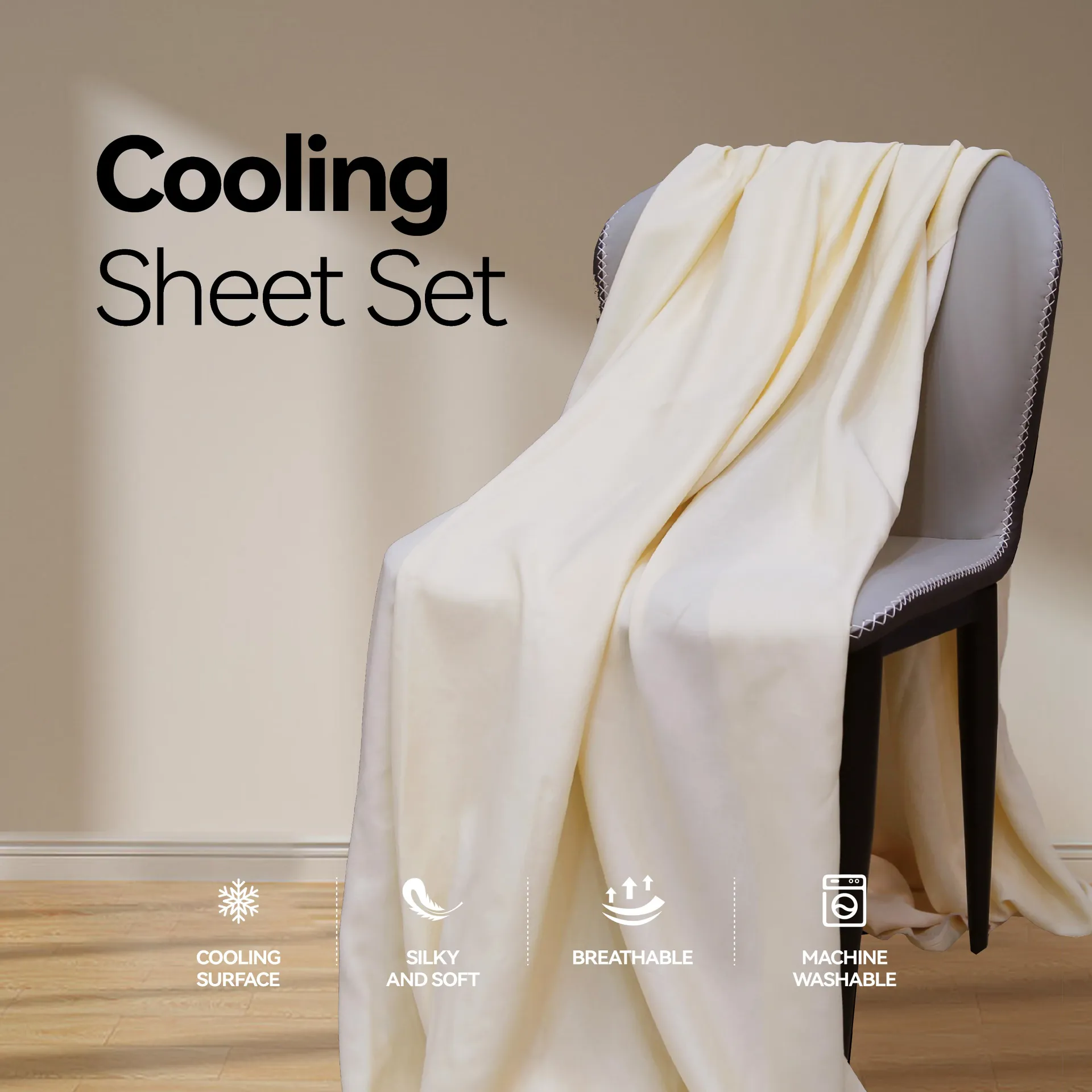
Technical Specifications and Performance Metrics for Bamboo Sheets
Understanding the technical specifications of sheet sets bamboo is crucial for informed procurement. Key metrics include thread count, measured as threads per square inch, which typically ranges from 250 to 400 for high-quality bamboo sheets, indicating a dense and durable weave. GSM (grams per square meter) is another important parameter, reflecting the fabric's weight and thickness, usually between 140-180 GSM for optimal balance of breathability and drape. Fabric composition, while often 100% bamboo (Lyocell or Viscose), can also include blends to enhance specific properties, such as the "Cool-Feeling bedsheet set tencel polyester blend," which leverages Tencel for its exceptional cooling and moisture-wicking properties, similar to advanced bamboo fabrics, combined with polyester for added durability and wrinkle resistance.
| Parameter | Range/Value | Description |
|---|---|---|
| Fiber Type | Bamboo Lyocell / Viscose | Environmentally friendly, soft, durable cellulose fibers. |
| Thread Count (TC) | 250 - 400 | Indicates fabric density and softness. Higher TC for luxury. |
| GSM (Grams per Sq. Meter) | 140 - 180 | Fabric weight, impacting drape and breathability. |
| Weave Type | Sateen / Twill | Contributes to fabric's sheen, softness, and durability. |
| Moisture Absorption | Excellent (Up to 3x cotton) | Key for thermoregulation and keeping sleepers dry. |
| Tensile Strength | High (e.g., > 250 N) | Indicates resistance to tearing and overall durability. |
| Shrinkage Rate | Minimal ( | Ensures size stability after washing. |
These parameters collectively define the performance profile of sheet sets bamboo. Beyond these, certifications like OEKO-TEX Standard 100 ensure the absence of harmful substances, while GOTS (Global Organic Textile Standard) certifies organic bamboo cultivation and processing for certain products. Manufacturers providing comprehensive data and certifications demonstrate commitment to quality and transparency, crucial for B2B partnerships.

Application Scenarios and Strategic Advantages of Bamboo Bedding
The unique properties of sheet sets bamboo make them ideal for a variety of application scenarios across industries. In the hospitality sector, luxury hotels and resorts choose bamboo sheets for their unparalleled softness, breathability, and elegant drape, which significantly enhance guest experience and satisfaction. Their inherent thermoregulating properties ensure comfort in varying climates, reducing the need for excessive air conditioning and potentially contributing to energy savings. Furthermore, the durability and ease of care of bamboo fabrics translate to longer product lifespans and reduced operational costs for laundries.
For healthcare facilities and specialized care environments, the hypoallergenic and antibacterial qualities of bamboo are particularly advantageous. Bamboo naturally resists dust mites and is gentle on sensitive skin, making it suitable for patients with allergies or dermatological conditions. The fabric's moisture-wicking capabilities also contribute to a drier, more comfortable sleeping environment, crucial for patient well-being. Beyond institutional applications, residential sectors, particularly the high-end retail market, value bamboo for its sustainable origins and its ability to provide an "ultra soft bamboo sheets" experience, appealing to environmentally conscious consumers seeking premium comfort. Real-world application cases demonstrate consistent performance and positive user feedback, reinforcing the strategic value of incorporating bamboo into product lines.
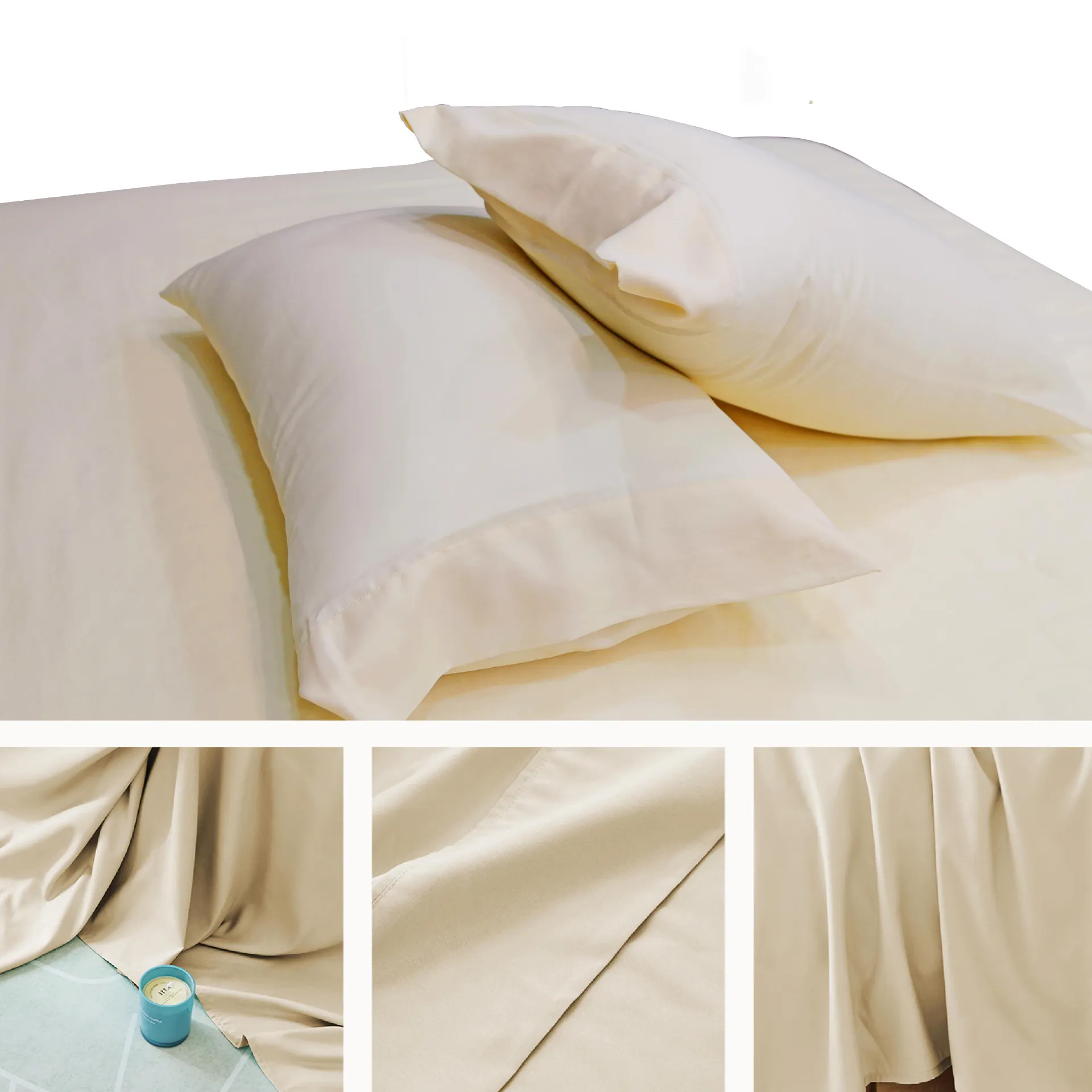
Comparative Analysis: Bamboo vs. Linen and Other Blends
When evaluating bedding materials, a comparative analysis between linen and bamboo sheets, alongside other common fabrics, reveals distinct advantages for bamboo. While linen, derived from flax, is highly durable, breathable, and develops a softer texture over time, it typically has a coarser feel initially and is prone to wrinkling. Cotton, especially high-thread-count Egyptian or Pima cotton, offers softness but often lacks the superior moisture-wicking and thermoregulating properties inherent to bamboo. Furthermore, bamboo's cultivation generally requires less water and no pesticides compared to conventional cotton, offering a more sustainable profile.
For businesses seeking the ultimate comfort experience, the market for ultra soft bamboo sheets is growing rapidly, driven by Lyocell bamboo's luxurious hand-feel. While discount bamboo sheets may be available, it is crucial for B2B buyers to verify the fiber processing method and certifications to ensure genuine quality and sustainability claims. A blend like the Cool-Feeling bedsheet set tencel polyester blend exemplifies how combining advanced cellulose fibers (like Tencel, a form of Lyocell often compared to bamboo Lyocell due to similar properties) with synthetic fibers can achieve enhanced performance characteristics such as wrinkle resistance and long-term durability without compromising on comfort. This strategic blending allows manufacturers to tailor products to specific market needs, balancing performance, cost, and sustainability.
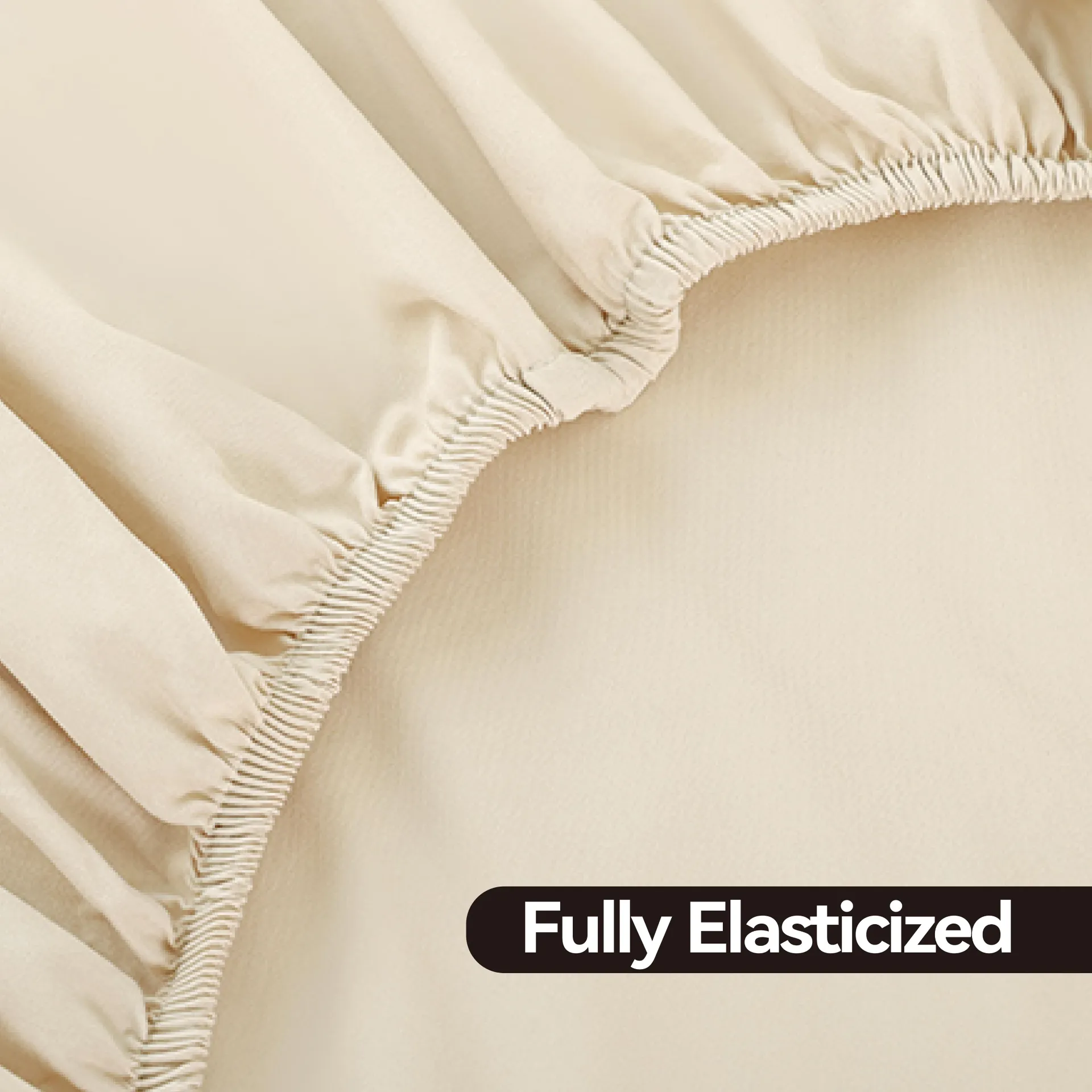
Customization Solutions and B2B Partnership Opportunities
For B2B clients, the ability to customize sheet sets bamboo is a significant advantage. Reputable manufacturers offer comprehensive customization services, including bespoke sizing, color matching (using eco-friendly dyes), specific weave patterns (e.g., sateen for luxury, twill for durability), and private labeling or branding. This flexibility allows businesses to create unique product lines that perfectly align with their brand identity and target market demands, whether for a boutique hotel chain or a specialized retail collection. Customization extends to packaging design, material blends (like the Tencel polyester blend for specific performance needs), and even incorporating antimicrobial treatments for enhanced hygiene in commercial settings.
Strategic partnerships with experienced manufacturers, boasting a proven track record of service spanning many years and adherence to international quality standards like ISO 9001, are paramount. Such collaborations provide access to technical expertise, advanced production capabilities, and robust supply chain management. This ensures consistent product quality, competitive pricing for wholesale sheet sets bamboo orders, and reliable delivery schedules. Established manufacturers often have extensive experience in meeting stringent B2B requirements, offering tailored solutions that optimize cost-efficiency without compromising on product excellence or ethical sourcing.
Quality Assurance, Certifications, and After-Sales Support
Ensuring the highest quality in sheet sets bamboo is paramount for maintaining customer trust and brand reputation. Leading manufacturers rigorously adhere to international quality management systems such as ISO 9001, covering all aspects from raw material sourcing to final product inspection. Certifications like OEKO-TEX Standard 100 are essential, guaranteeing that the finished textiles are free from harmful substances, a critical factor for consumer safety and environmental responsibility. For bamboo from organic cultivation, GOTS certification provides an additional layer of assurance regarding sustainable and ethical practices throughout the supply chain. These certifications are not merely labels but reflect a commitment to transparency and adherence to global best practices.
Beyond production quality, robust after-sales support and clear warranty policies are indicative of a trustworthy supplier. This includes responsive customer service, transparent delivery cycle explanations (typically varying based on order volume and customization but with clear communication), and comprehensive product warranties against manufacturing defects. For B2B clients, understanding the product's expected lifespan and care instructions is vital for maximizing their investment. Reputable providers offer detailed guidance on maintaining the integrity and performance of sheet sets bamboo over time, ensuring client satisfaction and fostering long-term business relationships.
Frequently Asked Questions (FAQ) about Bamboo Sheets
- Q1: What makes bamboo sheets cooling and breathable?
- A1: Bamboo fibers, especially those processed into Lyocell or Viscose, have a unique porous structure that allows for excellent air circulation and superior moisture-wicking capabilities. This wicks away sweat from the body, leading to a natural cooling effect and preventing heat retention, ensuring a comfortable sleep environment.
- Q2: Are bamboo sheets truly hypoallergenic and good for sensitive skin?
- A2: Yes, bamboo fabric is naturally hypoallergenic and resistant to dust mites, common allergens, and mildew. Its smooth, round fibers are gentle on the skin, reducing irritation, making sheet sets bamboo an excellent choice for individuals with allergies, asthma, or sensitive skin conditions.
- Q3: How durable are bamboo sheets compared to cotton or linen?
- A3: High-quality bamboo sheets, particularly those made from Lyocell, are exceptionally durable. They possess high tensile strength, making them resistant to pilling and tearing with proper care. While cotton can be durable, bamboo often outperforms it in terms of resistance to shrinkage and color fading, offering a longer lifespan when laundered correctly.
- Q4: What is the typical delivery cycle for bulk orders of bamboo sheets?
- A4: Delivery cycles for bulk orders of sheet sets bamboo vary depending on order volume, customization requirements, and current production schedules. Typically, standard orders can be fulfilled within 4-6 weeks, while highly customized or large-volume orders may require 8-12 weeks. Reputable manufacturers provide clear lead times and communicate progress throughout the production and shipping process.
- Q5: What certifications should I look for when purchasing bamboo sheets for B2B?
- A5: For B2B procurement, look for certifications such as OEKO-TEX Standard 100 (for harmful substances), ISO 9001 (for quality management systems), and GOTS (Global Organic Textile Standard) if organic bamboo is a priority. These certifications ensure product safety, quality, and responsible manufacturing practices.
References
- Textile Exchange. "Material Snapshot: Bamboo Viscose/Rayon." (General industry resource for sustainable textiles).
- Lenzing AG. "TENCEL™ Lyocell fibers." (For detailed information on Lyocell process and properties).
- OEKO-TEX®. "STANDARD 100 by OEKO-TEX®." (Standard for textiles tested for harmful substances).
- International Organization for Standardization. "ISO 9001: Quality Management." (Global standard for quality management systems).
- ResearchGate. "Properties of Bamboo Fibre and Its Application in Textiles." (Academic research on bamboo fiber characteristics).
-
Garment Washed Sheets Color Retention Prevents Fading After WashesNewsNov.14, 2025
-
Charcoal Bamboo Sheets Moisture-Wicking Property Enhances Sleep ComfortNewsNov.12, 2025
-
High Quality Satin Sheets Soft Touch Improves Hotel Guest ExperienceNewsNov.12, 2025
-
Poly Cotton Sheets Breathable Weave Reduces Skin Irritation For PatientsNewsNov.12, 2025
-
Microfiber Sheet Stain Resistant Feature Eases Hotel HousekeepingNewsNov.12, 2025
-
Polyester Cotton Bedding Durable Fabric Withstands Frequent Hotel WashesNewsNov.12, 2025
-
Microfiber Pillow Filling Even Distribution Prevents LumpingNewsNov.03, 2025






